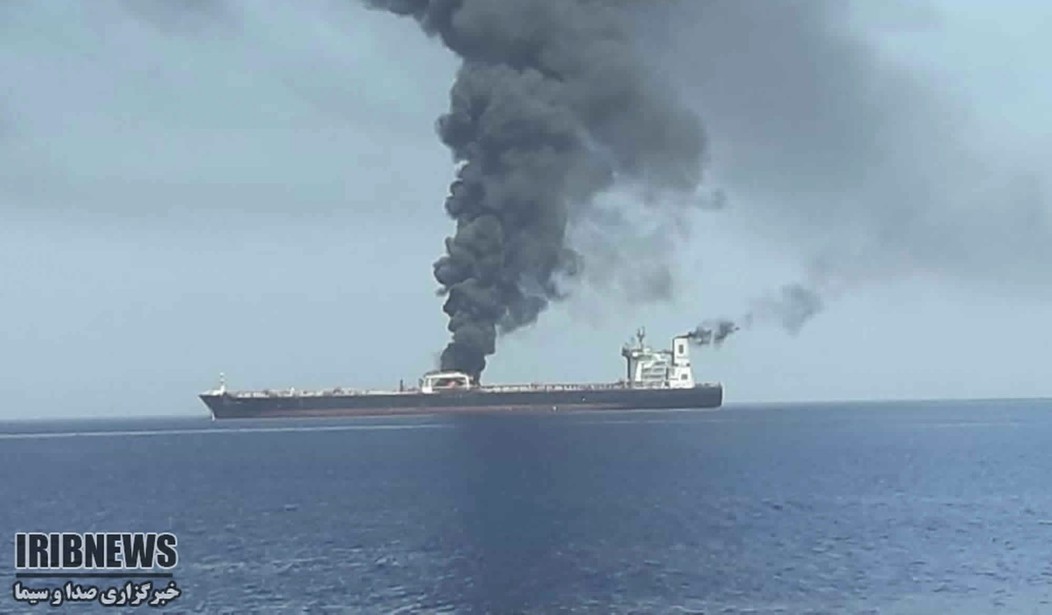Last month, when Trump dispatched the USS Abraham Lincoln Carrier Strike Group to the Persian Gulf region, it was reportedly the Israeli Mossad that tipped off the U.S. “on an Iranian plan to attack either a US or a US-allied target.”
If so, the warning has already been borne out as just a week later Iran—trying to bully and threaten its way out of the Trump administration’s economic chokehold—attacked Norwegian, Emirati, and Saudi oil tankers, and last week attacked a Japanese and a Norwegian oil tanker.
It’s not the first time Israeli intelligence has warned of impending attacks by Iran or by terror groups.
One of the most notable cases in recent years came when, in 2017, the Israeli army’s Unit 8200 tipped off Australia on an ISIS plot to down a civilian plane.
Unit 8200 is a signals-intelligence outfit similar to the U.S. National Security Agency. In this case, after receiving “exclusive intelligence” from Unit 8200, “Australian security forces arrested [in August] two men suspected of trying to place an improvised explosive device on an Etihad Airways flight out of Sydney in a plot directed by Islamic State.”
An Australian police official called it “one of the most sophisticated plots that has ever been attempted on Australian soil” and said it could have led to “a catastrophic event.”
The next exploit came in June 2018 when the Mossad “[gave] authorities in France, Germany, and Belgium crucial intelligence that led to arrests of a cell headed by an Iranian diplomat… at the Austrian embassy in Vienna.”
The terror cell also included two Belgian nationals and an alleged French accomplice who “planned to bomb a June 30 conference organized by an Iranian dissident group.” Here too the killing could have been large-scale as “[a]bout 25,000 people [eventually] attended the rally in the Paris suburb of Villepinte.”
Iran, of course, has a long history of terror attacks or attempted terror attacks on European soil. Later that year, Tehran was at it again with a plot to kill three Iranians in Denmark thought to belong to another antiregime dissident group.
This time, too, the Mossad stepped in and “provided its Danish counterpart with information” on the plot. The intelligence “prompted the arrest of a Norwegian national of Iranian origin,” and Denmark “recalled its ambassador to Iran over the incident.”
Now it turns out that, back in 2015, the Mossad also informed London of a huge bomb plot by Iran’s proxy Hizballah—but this rather interesting development was covered up.
Acting on the Mossad tipoff, UK security forces “raided four properties in North West London, discovering thousands of disposable ice packs containing three tons of ammonium nitrate, a common ingredient in homemade bombs.”
Britain’s Daily Telegraph, which broke the story, “said the raid came just months after the UK joined the US and other world powers in signing the Iran nuclear deal, and speculated that it was hushed up to avoid derailing the agreement with Tehran, which is the main patron of Hezbollah.”
The crucial role of Israeli intelligence in thwarting terror attacks, including large-scale catastrophic ones, does not mean, of course, that Israel wins popularity contests.
For instance, a BBC international poll of 26,000 people in 2013 found that, among 16 countries listed, the four least-liked were North Korea, Pakistan, Iran… and Israel.
That mindset could be spreading—to some extent—to young Americans. A 2016 Pew poll found 27 percent of millennials—up from 9 percent in 2006—sympathizing with the Palestinians and only 43 percent sympathizing with Israel.
This despite the fact that Israel is a leader in fighting terror while the Palestinians, going back decades, have been innovators of terror—right up to the recent incendiary kites and balloons that burn forests and fields to a crisp.
Popular or not, though, Israeli intelligence will keep uncovering terror plots and other planned aggressions, and all of us—Israelis and non-Israelis alike—are the safer for it.









Join the conversation as a VIP Member